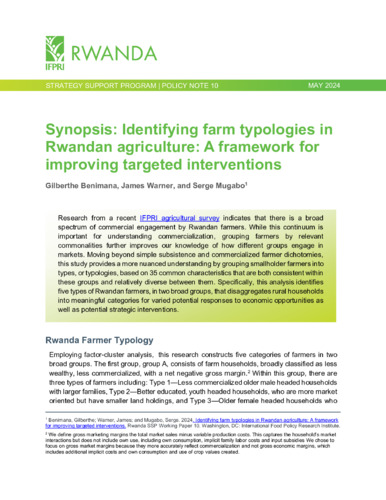Synopsis: Identifying farm typologies in Rwandan agriculture: A framework for improving targeted interventions
Abstract
Research from a recent IFPRI agricultural survey indicates that there is a broad spectrum of commercial engagement by Rwandan farmers. While this continuum is important for understanding commercialization, grouping farmers by relevant commonalities further improves our knowledge of how different groups engage in markets. Moving beyond simple subsistence and commercialized farmer dichotomies, this study provides a more nuanced understanding by grouping smallholder farmers into types, or typologies, based on 35 common characteristics that are both consistent within these groups and relatively diverse between them. Specifically, this analysis identifies five types of Rwandan farmers, in two broad groups, that disaggregates rural households into meaningful categories for varied potential responses to economic opportunities as well as potential strategic interventions.

